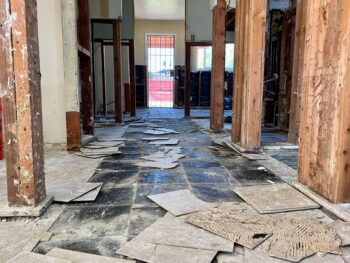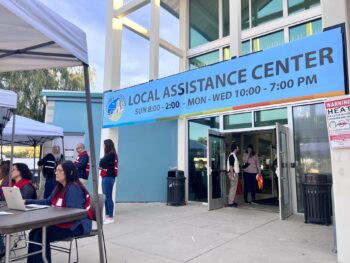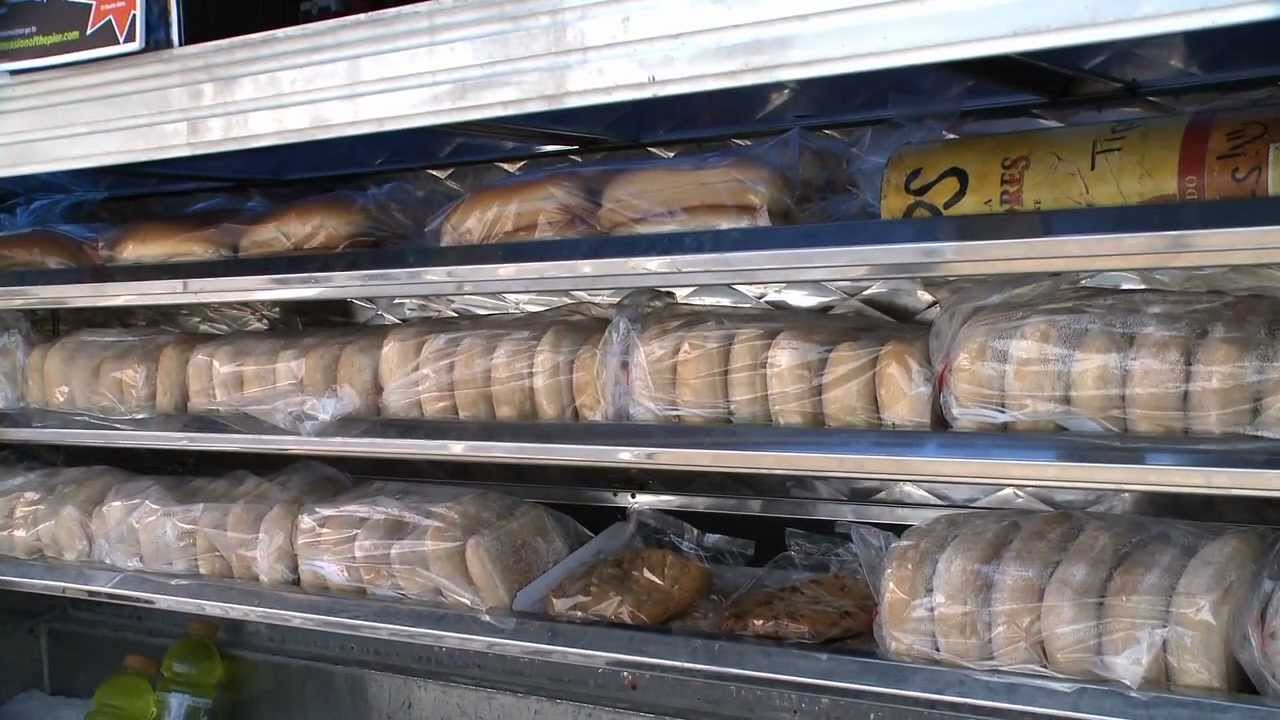Problems like these would weigh on anyone: unpaid—and unpayable—child support; outstanding tickets for jaywalking or public intoxication, all with mounting penalties.
To homeless veterans who struggle with mental and physical illness, substance abuse problems or chronic poverty, looming low-level criminal cases and child support problems can seem extra discouraging.
This weekend, hundreds of homeless veterans who have avoided coming in to court in the past will finally be able to resolve some of their legal troubles. Sure, the court is outdoors, and it’s literally on a court—the racquetball courts behind San Diego High School—but the hearings are real.
“These are veterans who stepped up in our time of need as a nation; this is our opportunity to step up in their time of need,” said Steve Binder, with the San Diego County Public Defender’s office and a major force behind the Homeless Court
Homeless Court and child support hearings are popular elements of “Stand Down,” an annual three-day event headed by the Veterans Village of San Diego at Balboa Park. Stand Down reaches hundreds of local homeless veterans each year, providing them with food, shelter, clothing, medical and dental care, and connecting them to long-term rehabilitative services.
Homeless Court, which Binder started at Stand Down in 1989, is a chance for homeless veterans to receive an alternative sentence for misdemeanor crimes and infractions. Cases are dismissed and fines are satisfied as the Court credits participation in treatment and other programs instead of meting out punishment.
Not punishment, but a plan
The homeless veterans who register for Stand Down are certainly showing they want to change, Binder said. This year, some 376 people are signed up.
“(The veterans) have voluntarily walked on site; they could have chosen not to participate,” said Binder. “They are signaling to the community at large that they desire to participate more fully and constructively as our neighbors.”
On Friday, homeless veterans with outstanding misdemeanors and infractions will meet with volunteer counselors—including County public defenders, private attorneys, members of the Naval Legal Service Officers and Solar Turbine employees— who will guide participants to programs and services at the event that could help veterans address the roots of their homelessness.
“We’ll physically walk them to the services, do the introduction,” said Binder. “If one service doesn’t work out, we’ll follow up with another. There’s a window of opportunity at Stand Down.”
Then, at the Stand Down court hearings Saturday, the veteran can present verified documentation of services already received and plans for future activities. Prosecutors from the San Diego City Attorney and the District Attorney offices agree to resolve most cases with dismissals and no fines or jail time in return for the defendant engaging in treatment and a structured program Binder said.
Superior Court judge Roger Krauel will preside over this weekend’s hearings.
The Stand Down court is a practical and caring way to address the kinds of public nuisance crimes—jaywalking, urinating in public, drunkenness—participants may have on their records, Binder said.
“The criminal justice system has more options than jail—when you’re done with jail, both the veteran and the community have the same problem,” he said.
Homeless fathers and mothers find help with child support
Like unresolved criminal charges, outstanding child support payments and child support orders, too, hold back some homeless veterans.
The County Department of Child Support Services is expecting about 80 Stand Down participants to take advantage of special child support counseling and court hearings Friday.
“Many of them have never come into a court, never addressed their child support issues,” said Shannon Welton, an attorney with the County Department of Child Support Services, which partners with Thomas Jefferson School of Law Veteran’s Clinic, the Superior Court and the Family Law Facilitator on the child support sessions.
Because they have not attended court hearings, homeless veterans may have child support orders out of line with their actual income and circumstances, Welton said. Every month they don’t pay or ignore the order, their debt grows while they continue to avoid the court and their responsibility to their children.
For veterans trying to make a change, the outstanding debts and monthly child support orders that don’t match income levels make working impractical, because a large portion of their paycheck may be garnished, Welton said.
“A lot of them, once they get a job, they really can’t support themselves and they are driven back to the streets.”
But the Department of Child Support Services helps bring these veterans back into the system. Staff members review their cases to see if they may be eligible to have their support order adjusted. If a modification appears warranted, Child Support Services files motions to allow the veterans to address their child support issues at Stand Down. The department also contacts custodial parents about the court hearing, giving them a chance to participate.
Attending court at Stand Down can transform a person’s prospects, Welton said. By finally coming to court, veterans take responsibility for their child support orders, address the needs of their children, and get their own lives back on track.
“Veterans Village has seen very positive results from our participation,” she said. “They have told us that it’s really changed the life situation for many veterans who come to them, because as they were graduating from rehabilitation, if their child support case had not been addressed, they weren’t in a good position to move forward and reintegrate into society.”
“If they don’t move forward, their children will continue to go without support,” Welton added.
Sometimes, bringing the homeless veteran back into the child support system means lost connections are re-established.
“We’ve had some really great results,” Welton said. “We’ve had children reunite with a parent and we’ve had custodial parents who say, “’I don’t want anything but to help this person get healthy.’”





